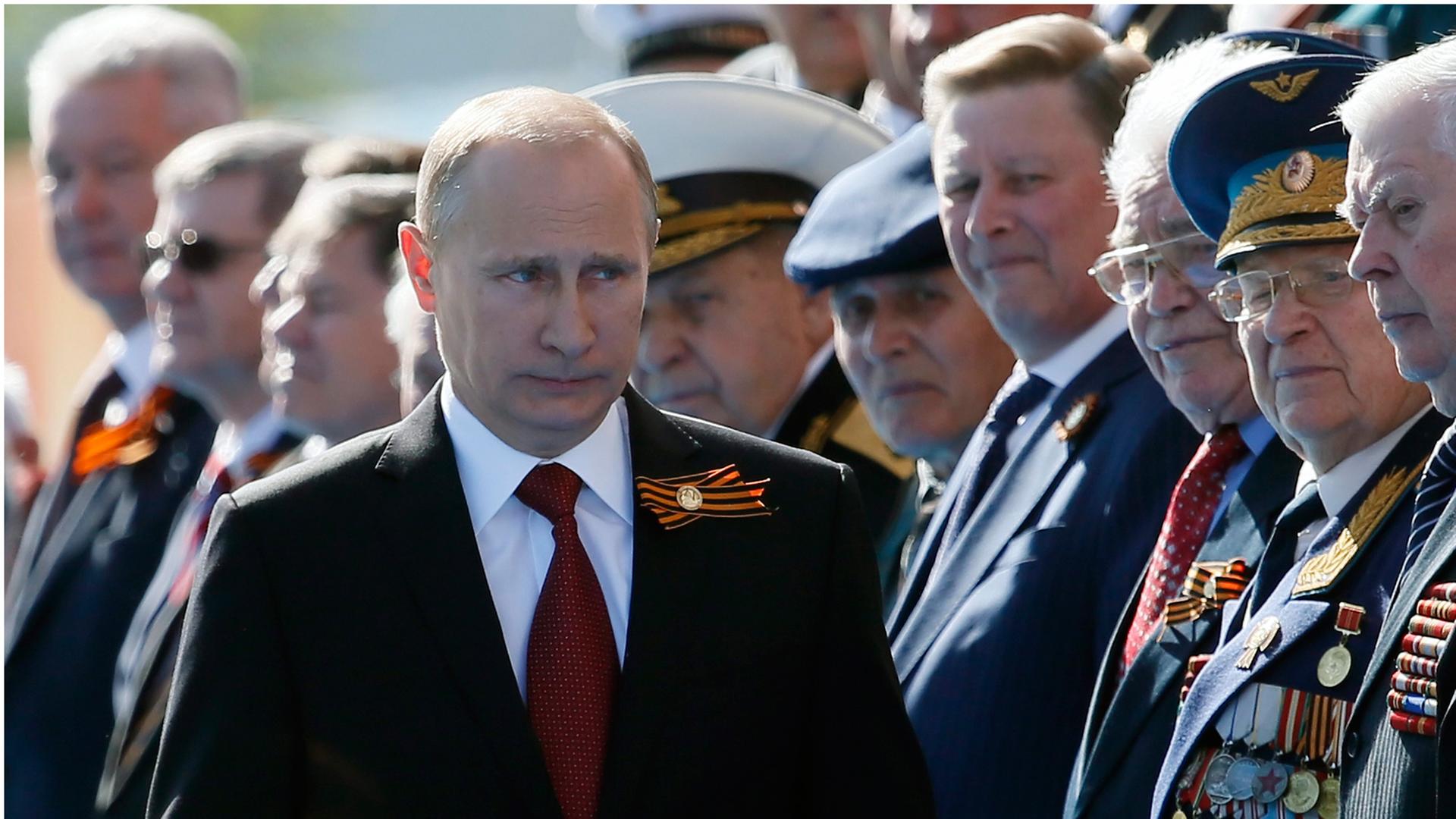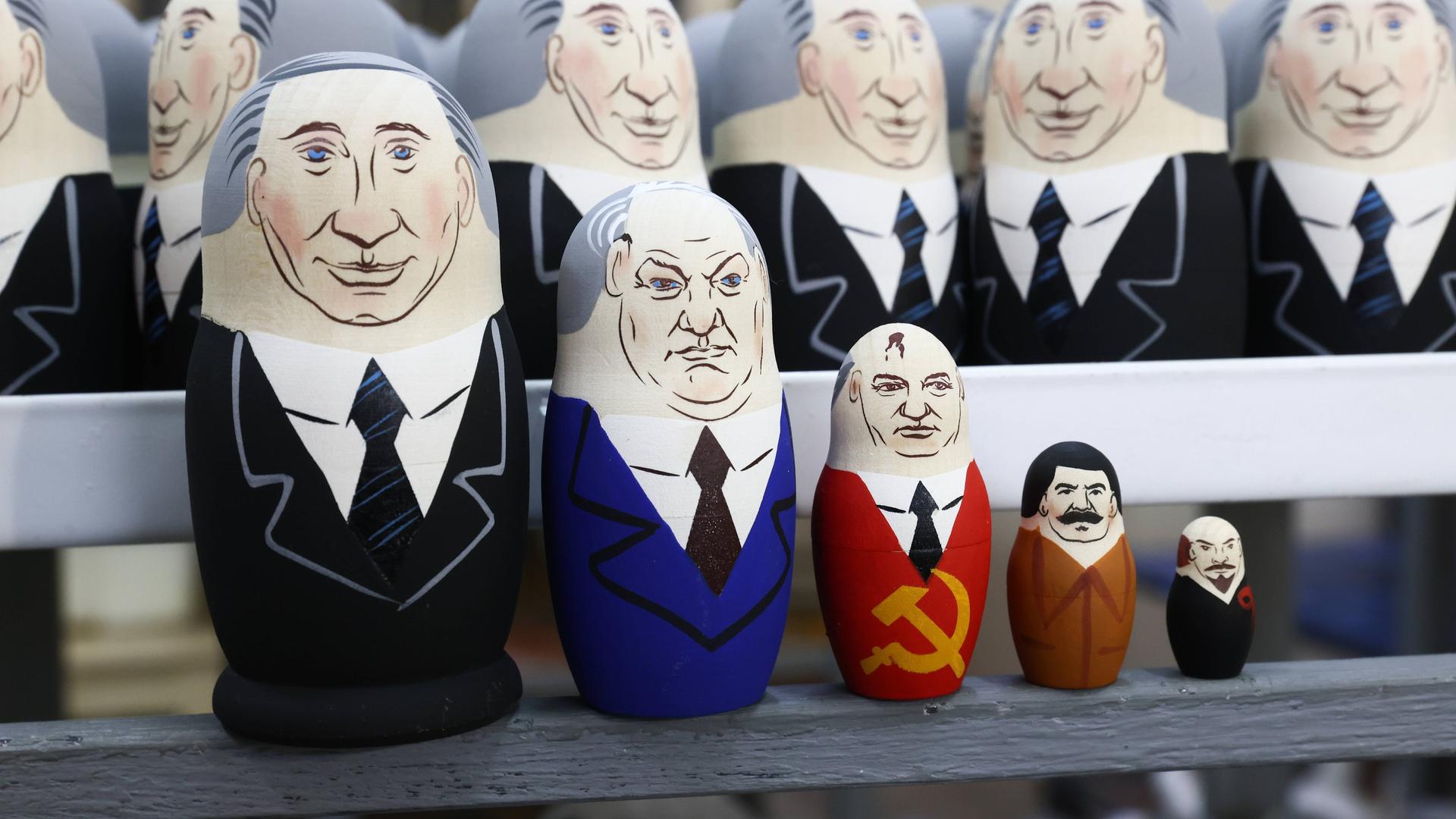
Putin sagte, die Sowjetunion habe Zeit gebraucht, um ihre Streitkräfte zu modernisieren. Es sei daher richtig gewesen, den Nichtangriffspakt mit Deutschland zu schließen. Er stellte die Frage in den Raum: "Ist es wirklich schlimm, dass die UdSSR nicht kämpfen wollte?"
Auszug aus der Übersetzung Putins ins Englische:
"I do not want to blame anyone here, but serious studies should show that these were the foreign policy methods at the time. The Soviet Union signed a non-aggression agreement with Germany. They say, "Oh, how bad." But what is so bad about it, if the Soviet Union did not want to fight? What is so bad? Moreover, even knowing about the inevitability of war, supposing that it could happen, the Soviet Union desperately needed time to modernise its army. We needed to implement a new weapons system. Each month had significance because the number of Katyusha rocket launchers or T-34 tanks in the Soviet army was in the single digits, whereas thousands were needed. Each day had significance. So idle thoughts and chatter on this matter on a political level may have a purpose, in order to shape public opinion, but this must be countered with serious, deep, objective research."Quelle: Offizielle Seite der russischen Präsidentschaft
"I do not want to blame anyone here, but serious studies should show that these were the foreign policy methods at the time. The Soviet Union signed a non-aggression agreement with Germany. They say, "Oh, how bad." But what is so bad about it, if the Soviet Union did not want to fight? What is so bad? Moreover, even knowing about the inevitability of war, supposing that it could happen, the Soviet Union desperately needed time to modernise its army. We needed to implement a new weapons system. Each month had significance because the number of Katyusha rocket launchers or T-34 tanks in the Soviet army was in the single digits, whereas thousands were needed. Each day had significance. So idle thoughts and chatter on this matter on a political level may have a purpose, in order to shape public opinion, but this must be countered with serious, deep, objective research."Quelle: Offizielle Seite der russischen Präsidentschaft
Keine neue These Putins
Die These, der von den Außenministern Molotow und von Ribbentrop ausgehandelte Pakt sei letztlich nur eine nötige Finte der Sowjetunion gewesen, wird durchaus auch von Historikern im Westen geteilt. Putin hat sich ebenfalls schon mehrfach in diesem Sinn geäußert, früher aber auch von einem moralischen Fehler gesprochen und Bedauern ausgedrückt. Umstrittener ist eine andere Äußerung, die der Präsident in dem Gespräch machte.
"Polen selbst an Teilung schuld"
Es geht um die geheimen Zusatzprotokolle zu dem deutsch-sowjetischen Nichtangriffspakt, die unter anderem eine Aufteilung Polens und des Baltikums regelten. Putin vertrat nun die Auffassung, Polen trage selber Schuld daran, dass es aufgeteilt worden sei. Denn in der Folge des Münchner Abkommens von 1938, in dem die Westmächte Hitler den Weg zur Zerschlagung der Tschechoslowakei frei gemacht haben, habe Polen schließlich auch ein Stück genommen. Das gleiche sei dann einfach wenig später mit Polen geschehen.
Auszug aus der Übersetzung Putins ins Englische:
"There are still arguments about the Molotov-Ribbentrop pact, and the Soviet Union is blamed for dividing Poland. But what did Poland itself do, when the Germans invaded Czechoslovakia? It took part of Czechoslovakia. It did this itself. And then, in turn, the same thing happened to Poland".
Quelle: Offizielle Seite der russischen Präsidentschaft.
"There are still arguments about the Molotov-Ribbentrop pact, and the Soviet Union is blamed for dividing Poland. But what did Poland itself do, when the Germans invaded Czechoslovakia? It took part of Czechoslovakia. It did this itself. And then, in turn, the same thing happened to Poland".
Quelle: Offizielle Seite der russischen Präsidentschaft.
Die Existenz des geheimen Zusatzprotokolls wurde in Zeiten der Sowjetunion bestritten. Erst kurz vor dem Ende der UdSSR in der Ära Gorbatschow wurde die Vereinbarung bestätigt und verurteilt. Heute ist in Russland die Ansicht weit verbreitet, der Westen missachte die Bedeutung der Roten Armee und die großen Opfer der Sowjetunion beim Sieg über Hitler-Deutschland. Dazu passend betonte Putin vor den jungen Historikern, der Westen wolle seine Schuld am Erstarken Hitlers und am Zweiten Weltkrieg durch die Appeasement-Politik nicht wahrhaben.


